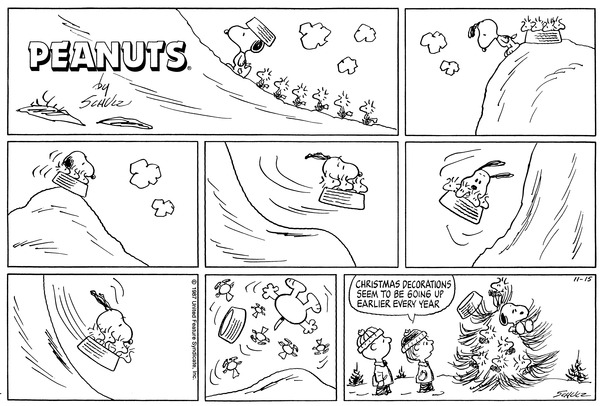DONALD Trump didn’t just defeat Hillary Clinton.
He defeated a global media establishment that, with very few exceptions, was determined to destroy him. And it’s that media pile-on during the 2016 US presidential election that may go down as one of the biggest strategic backfires in history.
“It’s a rigged system, folks,” the billionaire was fond of saying. That perception was
widely shared by the public, three quarters of whom believed the US media wanted Ms Clinton to win, according to a survey taken the week before the election.
Never before has a presidential candidate so explicitly declared war on journalists.
Earlier this month,
Washington Post writer Breanne Deppisch
tweeted a picturefrom a rally in Minnesota of a Trump fan wearing a shirt that read: “Rope. Tree. Journalist. Some assembly required.”
A few days earlier, fellow
Washington Post reporter Jose DelReal
tweeted about an encounter at another Trump rally. “Me: ‘Hey guys, I’m a reporter with
The Washington Post, mind if I ...’. Star spangled middle aged man: ‘F*** you and
The Washington Post.’”
Traditional political wisdom goes that you shouldn’t complain about the media because it makes you look weak.
But for Mr Trump, the war on the media was a key part of his election platform. At every rally, he would point out the assembled journalists penned into their enclosure, encouraging the crowd of sometimes tens of thousands to boo and jeer.
The idea to corral journalists like sheep — or alien creatures on display — reportedly came from
Hope Hicks, his young press secretary. They became a handy prop, ambassadors from the establishment, the enemy.
“These people,” he told a rally in Florida, gesturing to the gathered reporters, “are among the most dishonest people I’ve ever met, spoken to, done business with. These are the most dishonest people.
“There has never been anywhere near the media dishonesty like we’ve seen in this election. Don’t worry, they won’t spin the cameras and show the massive crowds. They won’t do that.”
Seth Stevenson, a journalist with left-wing website
Slate,
described the experience. “We were a vital element in Trump’s performance,” he wrote. “He never once failed to invite his crowds to heckle us. He was placing us on display like captured animals.
“And it worked. The press pack, collectively, looked nothing like the crowds at Trump events — particularly in more rural towns. We’d file into these places with our sleek luggage and our expensive tech gear and our better haircuts.
“We were far more diverse than the people in the stands. When the crowds lustily booed us, we’d sit there impassive and stone-faced, and this only further served to convince the rallygoers that we were snobby, superior pricks. The pen was an amazingly efficient means of othering us.”
Already largely distrusted as a profession, journalists with media outlets like The New York Times, The Washington Post, CNN and MSNBC did themselves no favours with their constant attacks on Mr Trump, often on social media but just as often as their official editorial line.
In January,
The Huffington Post, whose founder Arianna Huffington was revealed to be discussing with the Clinton camp “using Huffpo to echo our message without any perceived conflicts”,
according to WikiLeaks emails, began posting a disclaimer at the bottom of all stories about the Republican candidate.
“Note to our readers: Donald Trump is a serial liar, rampant xenophobe, racist, misogynist, birther and bully who has repeatedly pledged to ban all Muslims — 1.6 billion members of an entire religion — from entering the US,” the note read.
Collectively they went all in, overplayed their hand, and quite possibly hurt, more than helped, their chosen candidate. “If Hillary Clinton becomes the 45th US president, the 2016 election will be remembered as one in which much of the mainstream media all but admitted aligning itself with the Democratic Party,” Carl Cannon, executive editor of the influential RealClearPolitics website,
wrote last month.
Michael Goodwin, veteran media columnist with the
New York Post, described this election as the
“low-water mark of American journalism”. “Never before have so many media organisations, old and new, abandoned all pretence of fairness to take sides and try to pick a president,” he wrote.
“It is hard to escape the conclusion that playing favourites, while pretending to be neutral, is business-as-usual.
“The only difference is that WikiLeaks exposed the ugly truth. Much of the media world has long tilted left, but this year, the bias became open and notorious war because the liberal bell cow decided that Trump was not deserving of basic fairness.
“When
The New York Times crossed the Rubicon by allowing
reporters to express their opinions in so-called news stories, the floodgates opened across the country as imitators followed suit.”
By explicitly antagonising the media in their penned enclosure and labelling journalists variously “disgusting”, “dishonest”, “crooked” and “sleazy”, Mr Trump invited ever more attacks on himself.
That only amplified the sense, both among his supporters and those in the swinging middle, that he was right — look how the system was rigged against him. But it also inoculated him against those same attacks.
By mid-October, when a series of women began coming forward in
The New York Times and elsewhere
accusing Mr Trump of sexual assault, to most of his supporters it was like the boy who cried wolf. They simply weren’t listening any more.
Media consumption was no longer passive. In all those places, Mr Trump’s supporters would take the mainstream media’s stories and pick them apart, dissect and quite often debunk them, all the while seething with rage.
In the aftermath of last week’s shock win, CBS News correspondent Will Rahn
made a rare admission. “It shouldn’t come as a surprise to anyone that, with a few exceptions, we were all tacitly or explicitly #WithHer, which has led to a certain anguish in the face of Donald Trump’s victory,” he wrote.
“Trump knew what he was doing when he invited his crowds to jeer and hiss the reporters covering him. They hate us, and have for some time.
“And can you blame them? Journalists love mocking Trump supporters. We insult their appearances. We dismiss them as racists and sexists. We emote on Twitter about how this or that comment or policy makes us feel one way or the other, and yet we reject their feelings as invalid.
“It’s a profound failure of empathy in the service of endless posturing.”
Or there’s that small matter of violence. When a Trump supporter
punched a protester in the face at a rally, news networks around the world ran the footage on high rotation for a week. The man, 78-year-old John McGraw, was charged with assault and disorderly conduct.
After all, Donald Trump is literally Hitler.
All of this has led many to completely disconnect from what they have taken to calling by the German word “lugenpresse”, or “lying press” — a term used by Germans angry at the media for
actively suppressing negative news about immigrants, notably in the wake of the Cologne mass sexual assaults.
Because if people don’t like you, calling them Nazis should do the trick.
And this shall be a sign unto you; Ye shall find the babe wrapped in swaddling clothes, lying in a manger. And suddenly there was with the angel a multitude of the heavenly host praising God, and saying, Glory to God in the highest, and on earth peace, good will toward men. --Book 42, Luke (002:08-14) The Bible, King James Version [Linus picks up his blanket and shuffles off-stage.]





